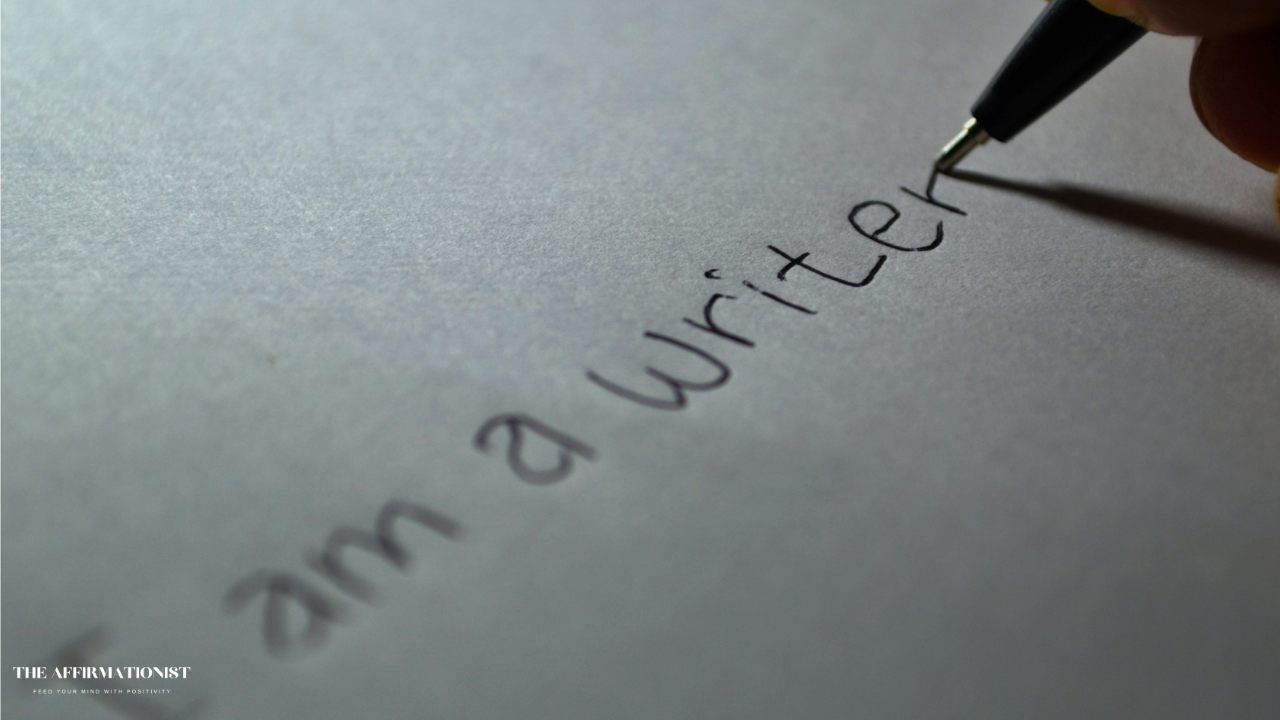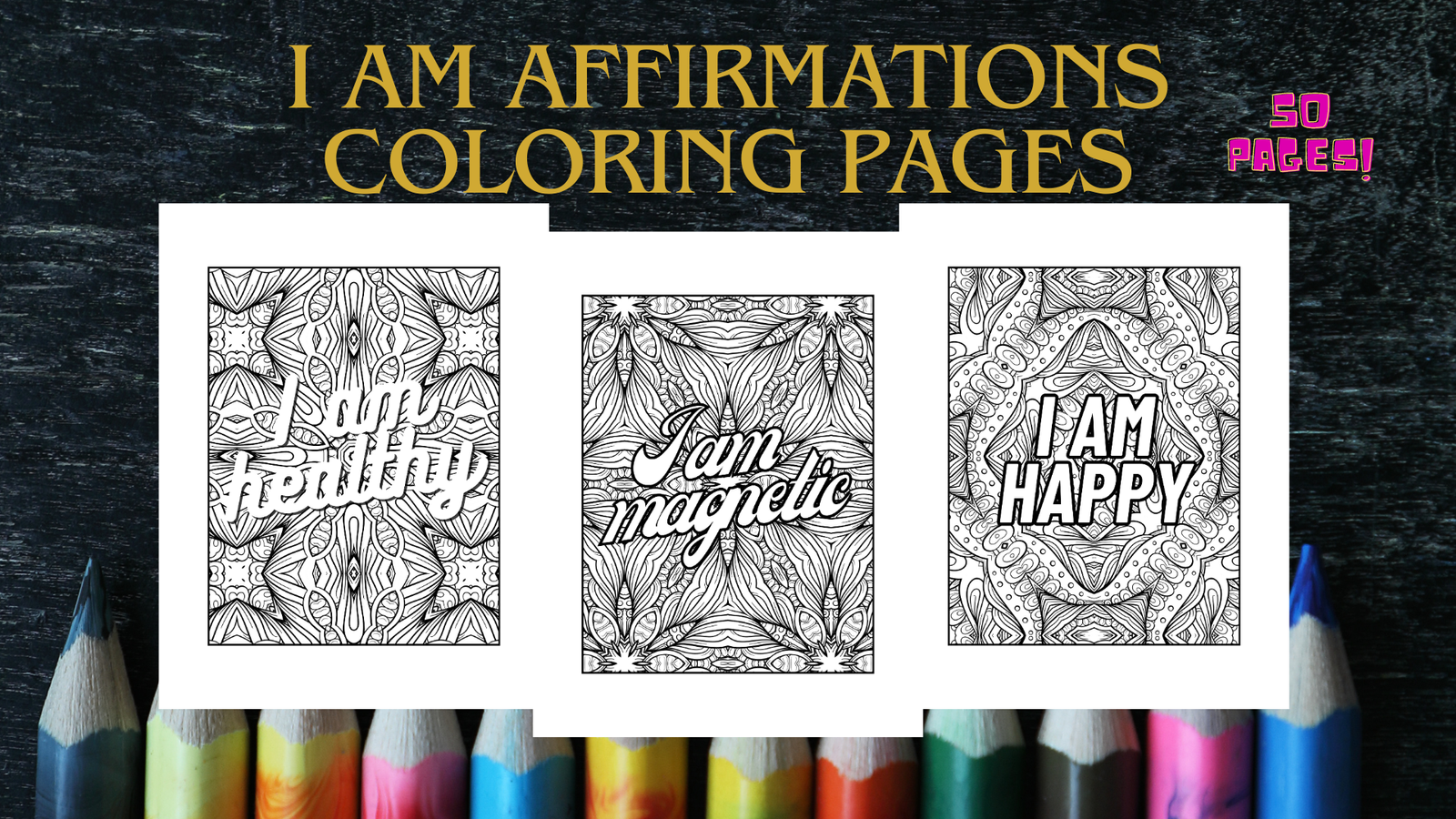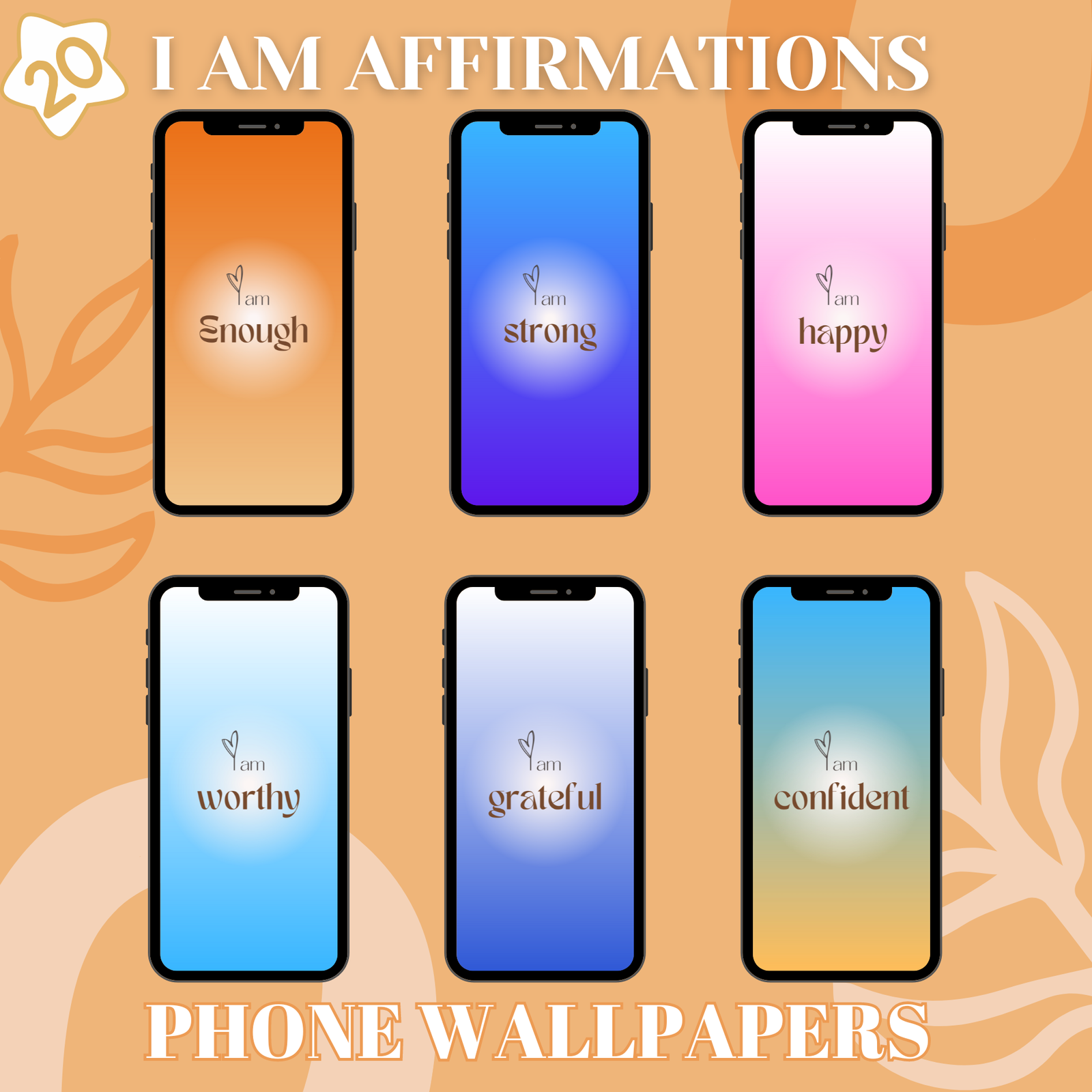Introduction
In the realm of writing, where imagination takes flight and stories come to life, the power of self-belief can be a writer’s greatest ally. Affirmations, those positive statements we repeat to ourselves, can be a potent tool for cultivating confidence, overcoming self-doubt, and unlocking our full creative potential. This comprehensive guide delves into the world of affirmations for writers, exploring how they can help you find your unique voice, craft compelling narratives, and ultimately, tell your story with conviction.
Understanding the Writer’s Journey: A Tapestry of Experiences

The writer’s journey isn’t a straight line from novice to published author; it’s a winding path, a complex tapestry woven with threads of inspiration, frustration, perseverance, and growth. It’s a deeply personal experience, unique to each individual, yet sharing common themes that resonate across the writing community. Understanding these commonalities can provide comfort, validation, and a sense of shared experience, reminding writers they are not alone in their struggles and triumphs.
The Initial Spark: Finding the Call to Write
For many writers, the journey begins with a spark—an idea, an observation, an emotion that ignites a desire to express themselves through words. This initial spark can come from anywhere: a captivating book, a poignant life experience, a dream, or simply an innate urge to create. It’s the moment the writer recognizes a calling, a pull towards the written word. This initial phase is often characterized by excitement and a sense of boundless possibility.
The Learning Curve: Honing the Craft
Once the initial spark ignites, the writer embarks on a continuous learning process. This involves:
- Developing Skills: Learning the fundamentals of grammar, punctuation, sentence structure, and narrative techniques. This can involve formal education, workshops, online courses, or self-study.
- Reading Widely: Immersing oneself in diverse genres and writing styles to absorb different approaches to storytelling and language. Reading like a writer means analyzing how other authors craft their work.
- Practicing Regularly: Writing consistently, even when inspiration is lacking, is crucial for developing fluency and honing one’s craft. This might involve freewriting, journaling, short stories, or working on a larger project.
- Seeking Feedback: Sharing work with trusted critique partners, writing groups, or mentors to receive constructive criticism and identify areas for improvement.
The Valley of Self-Doubt: Facing Internal Obstacles
The writer’s journey is rarely without its challenges. One of the most common hurdles is self-doubt, which can manifest in various forms:
- Imposter Syndrome: The feeling of being a fraud, despite evidence of skill and talent. Writers may fear being “found out” as not being good enough.
- Fear of Failure: The anxiety of not meeting expectations, whether their own or those of others. This can lead to procrastination or avoidance of writing altogether.
- Perfectionism: The relentless pursuit of flawlessness, which can paralyze the writing process and prevent writers from finishing their work.
- Writer’s Block: The frustrating inability to generate new ideas or put words on the page. This can be caused by various factors, including stress, fear, or lack of inspiration.
The Peaks of Inspiration: Moments of Creative Flow
Amidst the challenges, there are also moments of pure inspiration and creative flow, where words seem to pour onto the page effortlessly. These are the moments that make the writer’s journey so rewarding:
- Finding the Right Words: The satisfaction of capturing a thought or emotion perfectly in words.
- Creating Compelling Characters: The joy of bringing characters to life and watching them interact within a story.
- Building Immersive Worlds: The thrill of creating fictional worlds that readers can get lost in.
- Connecting with Readers: The profound experience of sharing stories that resonate with others and evoke emotions.
The Long Haul: Perseverance and Dedication
The writer’s journey is often a marathon, not a sprint. It requires perseverance, dedication, and a willingness to embrace the long haul. This includes:
- Developing Resilience: Learning to cope with rejection, criticism, and setbacks.
- Maintaining Discipline: Establishing a consistent writing routine and sticking to it, even when motivation wanes.
- Embracing the Process: Focusing on the joy of writing rather than solely on the end result.
- Celebrating Small Victories: Acknowledging and appreciating every milestone along the way, no matter how small.
The Ever-Evolving Path: Growth and Transformation
The writer’s journey is not a destination but a continuous process of growth and transformation. With each story written, each challenge overcome, and each lesson learned, writers evolve and refine their craft. They discover new aspects of their voice, explore different genres, and deepen their understanding of storytelling.
By understanding these common themes and experiences, writers can better navigate their own individual journeys, find support within the writing community, and ultimately, find their voice and tell their stories with confidence and authenticity.
The Power of Affirmations for Writers: Reshaping the Inner Narrative

Affirmations are more than just positive statements; they are tools for cognitive restructuring, a technique used in cognitive behavioral therapy (CBT). They work by challenging negative thought patterns and replacing them with more constructive and empowering beliefs. For writers, whose work is so intimately tied to their self-perception and creative confidence, affirmations can be particularly transformative.
How Affirmations Work: Rewiring the Brain
Our brains are wired to reinforce repeated thoughts and beliefs. Negative self-talk, such as “I’m not a good writer” or “I’ll never get published,” strengthens neural pathways associated with these negative beliefs, making them more likely to recur. Affirmations, when repeated consistently, create new neural pathways associated with positive beliefs, gradually weakening the negative ones. This process, known as neuroplasticity, allows us to literally rewire our brains and change our thought patterns.
Here’s a breakdown of how affirmations impact the writer’s mindset:
- Challenging Limiting Beliefs: Many writers struggle with limiting beliefs that hold them back from reaching their full potential. These beliefs might stem from past experiences, criticism, or self-doubt. Affirmations directly challenge these beliefs by offering counter-statements that affirm the writer’s abilities and worth.
- Boosting Self-Efficacy: Self-efficacy, the belief in one’s ability to succeed in specific situations or accomplish a task, is crucial for writers. Affirmations can enhance self-efficacy by reminding writers of their past successes, their inherent talents, and their capacity for growth.
- Reducing Stress and Anxiety: The writing process can be stressful, especially when facing deadlines, writer’s block, or criticism. Affirmations can help reduce stress and anxiety by promoting a sense of calm, confidence, and control.
- Improving Focus and Concentration: Negative thoughts and self-doubt can be distracting, making it difficult for writers to focus on their work. Affirmations can help clear mental clutter and improve focus by fostering a positive and centered mindset.
- Fostering Resilience: Rejection and setbacks are part of the writing journey. Affirmations can help writers develop resilience by strengthening their self-belief and reminding them of their inner strength.
Specific Benefits of Affirmations for Writers:
Let’s explore the benefits mentioned previously in more detail:
- Boosting Confidence: Writing is a vulnerable act. Sharing your work with the world exposes you to potential criticism and judgment. Affirmations like “I am a talented writer with a unique voice” and “My words have the power to inspire” help build a strong foundation of self-belief, allowing writers to approach their work with confidence and courage.
- Overcoming Writer’s Block: Writer’s block can be a frustrating and debilitating experience. Affirmations such as “My creativity flows effortlessly” and “I am open to new ideas and inspiration” can help break through mental barriers and reignite the creative spark. They shift the focus from lack to abundance, reminding the writer of their inherent creative capacity.
- Finding Your Unique Voice: Every writer has a unique perspective and style. Affirmations like “I embrace my authentic self in my writing” and “My unique voice is valuable and deserves to be heard” encourage writers to embrace their individuality and express themselves authentically. They validate the writer’s unique perspective and encourage them to share it with the world.
- Embracing Imperfection: The pursuit of perfection can stifle creativity and lead to procrastination. Affirmations such as “I embrace the imperfections of the writing process” and “I focus on progress, not perfection” help writers let go of the need for flawlessness and embrace the messy, iterative nature of writing. They encourage a growth mindset, where mistakes are seen as opportunities for learning and improvement.
- Cultivating a Positive Mindset: A positive mindset is essential for navigating the challenges of the writing journey. Affirmations like “I approach my writing with enthusiasm and optimism” and “I am grateful for the opportunity to write and create” help cultivate a positive outlook, fostering resilience, perseverance, and a love for the craft.
The Science Behind Affirmations:
While anecdotal evidence and personal experience strongly support the power of affirmations, research in psychology and neuroscience provides further validation. Studies have shown that affirmations can:
- Activate brain regions associated with self-related processing and reward.
- Reduce activity in the amygdala, the brain’s fear center.
- Improve problem-solving abilities under stress.
- Increase feelings of self-worth and self-compassion.
By understanding the psychological mechanisms and scientific backing behind affirmations, writers can harness their power more effectively and unlock their full creative potential.
Affirmations to Ignite Your Writing Journey
Here are some affirmations tailored specifically for writers, designed to empower you on your creative journey:



For Confidence and Self-Belief:
- “I am a talented writer with a unique voice.”
- “My words have the power to inspire and move others.”
- “I trust in my ability to craft compelling stories.”
- “I am confident in my writing skills and abilities.”
- “I embrace my creativity and allow it to flow freely.”
- “I am worthy of recognition and success as a writer.”
- “I believe in my potential to make a difference through my writing.”
- “I am a storyteller with a valuable perspective to share.”
- “My writing is a gift that I share with the world.”
- “I am proud of the work I create and the stories I tell.”
For Overcoming Writer’s Block:
- “I am open to new ideas and inspiration.”
- “My creativity flows effortlessly and abundantly.”
- “Words come to me easily and naturally.”
- “I trust in my ability to find the right words.”
- “I embrace the blank page as an opportunity for creation.”
- “I allow myself to write freely without judgment.”
- “I am a channel for creative energy and inspiration.”
- “I trust in the process of writing and allow it to unfold.”
- “I am connected to a wellspring of creativity within me.”
- “I am a writer, and writing is a part of who I am.”
For Finding Your Unique Voice:
- “I embrace my authentic self in my writing.”
- “My unique voice is valuable and deserves to be heard.”
- “I write from the heart with honesty and vulnerability.”
- “I trust in my intuition to guide my writing.”
- “I allow my personality to shine through in my work.”
- “I am not afraid to express my true self through writing.”
- “I celebrate my individuality and unique perspective.”
- “I write with passion and conviction.”
- “I am a writer with a distinct and compelling voice.”
- “My writing is a reflection of who I am.”
For Embracing Imperfection:
- “I embrace the imperfections of the writing process.”
- “I allow myself to write without fear of judgment.”
- “I focus on progress, not perfection.”
- “I am kind and compassionate to myself as a writer.”
- “I learn and grow from every writing experience.”
- “I celebrate my efforts and accomplishments as a writer.”
- “I am not afraid to make mistakes; they are part of the process.”
- “I trust that my writing will evolve and improve over time.”
- “I am patient with myself and the writing process.”
- “I am a writer who embraces growth and learning.”
For Cultivating a Positive Mindset:
- “I approach my writing with enthusiasm and optimism.”
- “I am grateful for the opportunity to write and create.”
- “I focus on the positive aspects of my writing journey.”
- “I am resilient and persevere through challenges.”
- “I celebrate my successes and learn from my setbacks.”
- “I am surrounded by support and encouragement.”
- “I am a writer with a bright future.”
- “I believe in my ability to achieve my writing goals.”
- “I am passionate about writing and telling stories.”
- “I am a writer who makes a positive impact through my words.”



How to Use Affirmations Effectively: Maximizing Their Impact
Simply repeating affirmations occasionally isn’t enough to achieve lasting change. To truly harness their power, it’s crucial to use them strategically and consistently. Here’s a comprehensive guide to maximizing the impact of affirmations for writers:
1. Crafting Powerful and Personalized Affirmations:
- Make them Personal: Generic affirmations are less effective than those tailored to your specific needs and challenges. Identify the specific areas where you struggle as a writer (e.g., self-doubt, writer’s block, perfectionism) and create affirmations that directly address those issues. For example, instead of “I am successful,” try “I am successfully completing my novel and connecting with readers.”
- Use Present Tense: Frame your affirmations in the present tense, as if you’ve already achieved your desired outcome. This helps to create a sense of immediacy and reinforces the belief that your goals are attainable. Instead of “I will be a published author,” say “I am a published author.”
- Use Positive Language: Avoid using negative words like “not,” “no,” or “don’t.” Focus on what you want to achieve, not what you want to avoid. For example, instead of “I don’t have writer’s block,” say “My creativity flows freely and easily.”
- Keep them Concise and Memorable: Shorter, more concise affirmations are easier to remember and repeat. Aim for affirmations that are clear, impactful, and easy to recall.
- Make them Believable (at least somewhat): While affirmations should stretch your beliefs, they should also be somewhat believable. If an affirmation feels completely unrealistic, your subconscious mind may reject it. Start with affirmations that feel attainable and gradually increase their scope as your confidence grows.

2. Establishing a Consistent Practice:
- Regular Repetition: Consistency is key to rewiring your brain. Repeat your chosen affirmations regularly, ideally multiple times a day. Aim for at least two dedicated sessions: one in the morning to set a positive tone for the day and one in the evening to reinforce positive beliefs before sleep.
- Find a Dedicated Time and Place: Create a routine by incorporating affirmations into your daily schedule. Choose a quiet and comfortable space where you can focus without distractions.
- Use Different Methods of Repetition:
- Verbal Repetition: Speak your affirmations aloud with conviction and emotion.
- Mental Repetition: Repeat your affirmations silently in your mind.
- Writing Affirmations: Write your affirmations in a journal or notebook. This can be particularly powerful as it engages multiple senses.
- Recording Affirmations: Record yourself speaking your affirmations and listen to the recording regularly.
- Combine with Other Practices: Enhance the effectiveness of affirmations by combining them with other practices such as:
- Visualization: Visualize yourself achieving your writing goals as you repeat your affirmations.
- Meditation: Incorporate affirmations into your meditation practice to deepen their impact.
- Gratitude: Express gratitude for your writing abilities and opportunities.
3. Engaging with Your Affirmations Emotionally:
- Feel the Emotion: Don’t just recite your affirmations mechanically. Try to connect with the emotions associated with them. Feel the confidence, joy, and gratitude that come with achieving your goals.
- Believe in the Message: The power of affirmations lies in your belief in them. Approach your affirmations with conviction and trust in their ability to transform your mindset.
- Address Resistance: If you encounter resistance or negative thoughts while repeating your affirmations, acknowledge them without judgment and gently redirect your focus back to the positive message.
4. Reviewing and Adjusting Your Affirmations:
- Regular Review: Periodically review your affirmations to ensure they are still relevant to your current goals and needs.
- Make Adjustments as Needed: As you grow and evolve as a writer, your needs and goals may change. Don’t hesitate to adjust your affirmations accordingly.
- Celebrate Progress: Acknowledge and celebrate your progress, no matter how small. This reinforces positive beliefs and motivates you to continue using affirmations.
5. Addressing Underlying Issues:
While affirmations are powerful tools, they are not a substitute for addressing deeper underlying issues such as trauma, anxiety, or depression. If you are struggling with significant mental health challenges, it’s important to seek professional help from a therapist or counselor. Affirmations can be a valuable complementary tool in your healing journey.
Example of Putting it All Together:
Let’s say a writer struggles with procrastination and fear of failure. Here’s how they could implement these tips:
- Crafting: “I confidently dedicate time each day to writing, enjoying the process of bringing my stories to life.”
- Practice: Every morning after waking up, they spend 5 minutes in a quiet space, repeating the affirmation aloud while visualizing themselves writing effortlessly. They also write the affirmation three times in their journal.
- Engagement: They focus on feeling the sense of accomplishment that comes from consistent writing and the excitement of sharing their stories.
- Review: Every month, they review the affirmation to see if it still resonates and make any necessary adjustments.
By following these guidelines, writers can maximize the impact of affirmations and use them as a powerful tool for achieving their writing goals and living a more fulfilling creative life.
Affirmations in Action: Real-Life Examples

This section will illustrate how affirmations can be used to address specific challenges and enhance different aspects of the writing process. We’ll present scenarios and then provide examples of relevant affirmations.
Scenario 1: Overcoming the Dreaded Blank Page (Writer’s Block)
- The Situation: A writer sits down to work on their novel, but the blank page stares back, mocking them. Ideas are scarce, and the words simply won’t flow. They feel frustrated and discouraged.
- The Challenge: Writer’s block, fear of not having good enough ideas, feeling overwhelmed by the scope of the project.
- Affirmations to Use:
- “My creativity flows effortlessly and abundantly.”
- “I am a channel for creative ideas and inspiration.”
- “I trust in my ability to find the right words at the right time.”
- “Every blank page is an opportunity for new beginnings.”
- “I embrace the process of discovery and allow my story to unfold naturally.”
- How to Use Them: The writer can repeat these affirmations before sitting down to write, during breaks, or whenever they feel stuck. They can also visualize ideas flowing onto the page or imagine themselves writing with ease.
Scenario 2: Dealing with Rejection (Submitting to Agents or Publishers)
- The Situation: A writer receives a rejection letter from a literary agent after months of waiting. They feel disheartened and question their talent and worth as a writer.
- The Challenge: Self-doubt, fear of not being good enough, feeling discouraged by external validation.
- Affirmations to Use:
- “Rejection is a part of the writing journey, not a reflection of my worth.”
- “I am a talented writer with a unique story to tell.”
- “I believe in my work and its potential to connect with readers.”
- “Every rejection brings me closer to finding the right opportunity.”
- “I am resilient and I will persevere in pursuing my writing goals.”
- How to Use Them: The writer can repeat these affirmations after receiving a rejection, reminding themselves of their value and resilience. They can also focus on the positive aspects of their writing journey and celebrate their accomplishments.
Scenario 3: Struggling with Self-Doubt and Imposter Syndrome
- The Situation: A writer has received positive feedback on their work, but they still feel like a fraud. They worry that they’re not truly talented and that people will eventually discover they’re an “imposter.”
- The Challenge: Imposter syndrome, fear of being exposed, difficulty accepting praise and recognition. 1 1. The Hidden Trap of the Praise Paradox: Conquering the Imposter Syndrome’s Fear of Recognition – Dranitsaris-Hilliard dranitsaris-hilliard.com
- Affirmations to Use:
- “I am worthy of success and recognition as a writer.”
- “My talent and skills are real and valuable.”
- “I trust in my abilities and embrace my accomplishments.”
- “I am capable of achieving great things through my writing.”
- “I accept praise and recognition with grace and gratitude.”
- How to Use Them: The writer can repeat these affirmations whenever they experience feelings of self-doubt. They can also keep a “success journal” to document their achievements and remind themselves of their capabilities.
Scenario 4: Difficulty Finding Time to Write (Balancing Life and Writing)
- The Situation: A writer has a busy schedule with work, family, and other commitments. They struggle to find the time and energy to dedicate to their writing.
- The Challenge: Time management, feeling overwhelmed by responsibilities, difficulty prioritizing writing.
- Affirmations to Use:
- “I prioritize my writing and make time for it in my daily schedule.”
- “I am efficient and productive with my writing time.”
- “Even small amounts of writing add up over time.”
- “I create a supportive and nurturing environment for my writing.”
- “I am committed to my writing goals and I make them a priority.”
- How to Use Them: The writer can repeat these affirmations while planning their week or setting daily goals. They can also visualize themselves carving out time for writing and creating a dedicated writing space.
Scenario 5: Perfectionism and Fear of Not Being Good Enough
- The Situation: A writer spends hours agonizing over every sentence, constantly revising and rewriting. They’re afraid of making mistakes and feel like their work will never be good enough.
- The Challenge: Perfectionism, fear of failure, difficulty letting go of control.
- Affirmations to Use:
- “I embrace the imperfections of the writing process.”
- “Progress is more important than perfection.”
- “I allow myself to write freely without judgment.”
- “My first drafts are meant to be imperfect; they are a starting point.”
- “I trust in my ability to revise and improve my work over time.”
- How to Use Them: The writer can repeat these affirmations before starting a writing session or whenever they feel the urge to obsess over details. They can also practice freewriting without editing to loosen their grip on perfectionism.
These examples demonstrate how affirmations can be tailored to specific situations and challenges that writers face. By using targeted affirmations, writers can effectively address their individual needs and cultivate a more positive and productive writing experience.
Conclusion: Embracing the Power Within
The writer’s journey is a deeply personal and transformative one, filled with moments of exhilaration, frustration, and everything in between. It’s a journey that demands not only skill and dedication but also a strong sense of self-belief and resilience. As we’ve explored in this comprehensive guide, affirmations offer a powerful tool for navigating this journey with greater confidence, clarity, and creative flow.
Affirmations are more than just positive statements; they are instruments of self-empowerment, capable of reshaping our inner narrative and unlocking our hidden potential. By consistently challenging negative thought patterns and replacing them with empowering beliefs, affirmations can help writers:
- Cultivate unwavering self-belief: Trusting in their talent, their voice, and their ability to tell compelling stories.
- Conquer the crippling effects of self-doubt and imposter syndrome: Recognizing their worth and embracing their accomplishments.
- Break through the frustrating barriers of writer’s block: Reconnecting with their creativity and allowing ideas to flow freely.
- Embrace the messy and imperfect nature of the creative process: Focusing on progress over perfection and finding joy in the act of writing.
- Develop resilience in the face of rejection and setbacks: Viewing challenges as opportunities for growth and learning.
The real-life examples we’ve explored demonstrate the practical application of affirmations in various writing scenarios, from overcoming the blank page to dealing with rejection and managing time constraints. By tailoring affirmations to specific challenges, writers can effectively address their individual needs and cultivate a more positive and productive writing experience.
Ultimately, the power of affirmations lies within each individual writer. It’s about making a conscious choice to nurture a positive inner dialogue, to believe in one’s abilities, and to embrace the transformative power of words. By incorporating affirmations into their daily routine, writers can cultivate a mindset of confidence, resilience, and creative abundance.
So, embrace the power of affirmations. Choose the affirmations that resonate most deeply with you, personalize them to your unique journey, and repeat them with conviction and belief. As you consistently nurture a positive inner narrative, you will begin to see a shift in your writing, your mindset, and your overall creative experience. You will find your voice, tell your story with authenticity and passion, and ultimately, embrace the writer you were born to be. The journey awaits; embrace it with confidence, and let your words shine.
Enhance Your Journey with These Empowering Tools
As you embrace change and navigate life’s transitions with the help of affirmations, it’s important to equip yourself with tools that support your growth and well-being. From affirmation card decks to self-care essentials, the right products can help reinforce your positive mindset and create a nurturing environment for personal transformation.
Below are some carefully selected items that can complement your affirmation practice, making it easier to stay focused, resilient, and mindful throughout your journey :
- 30.48 cm 15-Note Steel Tongue Drum D Key Percussion Instrument Cornices Shape Handpan Drum With Drum Mallets Carry Bag And Music Book, Used For Music Education Concert Spiritual Healing Yoga Entertainment 👉 item link
- Messages of Life Inspiration Cards – 44-Card Deck with Guidebook for Positive Affirmations & Spiritual Growth, Durable Paper Material, Ideal for Ages 14 & Up – Motivational Oracle Card Game 👉 item link
- Deck of Emotions Playing Cards – 54 Card Set for Mental Health, Family Bonding, Party Fun – Christmas, Halloween, Easter, Hanukkah, Thanksgiving – Ideal Gift for Birthday, Aesthetic Home Decor – Paper Material, No Electricity Needed 👉 item link
- 1pc Self-Care English Cover Star Moon Multicolored Optional Record 5 Minutes A Day, For Learning Supplies, Notebook, Library, More Affirmations Reflections, Optimistic, Happy, Simple Undated Hardcover 👉 item link
- 3pcs Wooden Framed Canvas Poster, Modern Art, Inspirational Canvas Painting, Ideal Gift For Bedroom Living Room Corridor, Wall Art, Wall Decor, Winter Decor, Room Decoration 👉 item link









